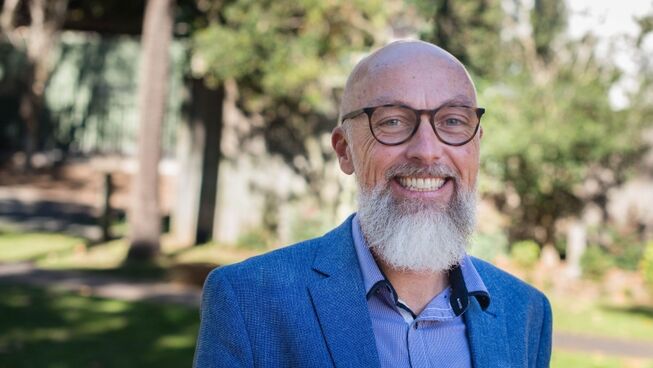Can We Trust The Gospel Eye Witnesses?
Distance diminishes.
Distance in space diminishes our visual and audio clarity.
Distance in time diminishes our memory capacity.
So it makes sense that an eye witness account of an event, a report by someone who was there in that space at that time, is the most accurate account of what actually happened.
That’s how good journalism works.
One exception to the rule, among modern Westerners at least, is the Bible, especially the four Gospel accounts of the birth, life, death and resurrection of Jesus that we call the Gospels of Matthew, Mark, Luke and John.
Suddenly, when it comes to Jesus, all bets are off. It’s as if those with the most proximity to the events in time and space are less trustworthy than, say, a 21st century Biblical scholar who is sceptical about miracles, resurrections and virgin births.
But let’s not forget how good journalism works. And how good journalists work. And few in Australia are better journalists than the internationally respected Foreign Editor of The Australian newspaper, Greg Sheridan. He’s interviewed Australian Prime Ministers, Presidents from around the world, senior cultural and legal figures across many nations.
As a journalist, Sheridan has cast his eye over the Gospel documents, pored over them with the eye of a seasoned hack, and come to the conclusion that there is the ring of truth to them, a ring of truth that belies the scepticism of many moderns. And perhaps your scepticism too.
In his newly released book on the matter, Christians: The Urgent Case for Jesus in our World, Sheridan, who has several best seller books under his belt as well as his career in the media, proves that there’s nothing quite like hearing from someone who was there at the time. And he says that the Gospel messages have the ring of truth about them because of this very fact:
"…historicity…can prove, and I think substantially has proved, that Jesus Christ was a real man, that he lived at the times of the Gospels say, that he was crucified and that the broad course of his life follows the Gospels story. Historicity can also prove that the Gospels, in their background stories and incidental events, accurately describe the Jewish society, which is Romans and Greek influences, which formed the background to Jesus’ life. Similarly, it can prove that the earliest Christians held their distinctive doctrines about Jesus and that these were not added in, many years later."
Journalists just don’t say that. They want to see source material. And they want to know that the source material is sound. And Greg Sheridan, well-known journalist, thinks it is.
The question really is not so much whether we believe that the Gospels are true, but whether we would want them to be true. People who are suspicious about the veracity of the Gospels have been known to cite Dan Brown’s best-selling fiction work The Da Vinci Code. Perhaps the claims of Jesus are not - primarily - unbelievable, as they are unpalatable.
We often believe what we feel is true. That’s just how we have become in our Western world. I would recommend Sheridan’s book, because he goes into why it is that we might not believe the Gospels and their account of Jesus, and very little of that has to do with whether the events recorded ever happened. From a journalist’s perspective, he believes that the truth of the eye witness accounts is not a debatable point.
And what scholars do find - those who work with source materials and take them seriously - is that every archaeological find or social discovery about the space and time that Jesus lived in backs up the observational comments in the Gospels. It’s as if what the writers talked about in terms of who lived when and where, what the living conditions were like, where on the map certain places were, and who was in charge of what, were accurate!
Of course we can’t say “prove it conclusively”. But that’s not how history works. History is not like a repeatable science experiment. What history needs is counter-claim to prove that what was said wasn’t. Or to prove that what wasn’t said, was! And journalists know that they skate on thin ice if the source material proves other than what they said.
That’s what makes the start of Luke’s Gospel such music to the ears of a journalist such as Greg Sheridan. Here’s how it begins:
"Many have undertaken to draw up an account of the things that have been fulfilled[a] among us, just as they were handed down to us by those who from the first were eyewitnesses and servants of the word. With this in mind, since I myself have carefully investigated everything from the beginning, I too decided to write an orderly account for you, most excellent Theophilus, so that you may know the certainty of the things you have been taught." (Luke 1:1-4)
Close in time to the events, varied witnesses who are the source or close to the sources of the stories, orderly research, with a passion for reliable transmission. All the stuff that makes for good journalism. All the stuff that makes for the Gospels.
Greg Sheridan says this:
"…as a lifelong journalist I have a particular reason for recommending the Gospels. They validate accurate reporting, even if the editing varies from edition to edition (we journalists typically blame a lot on editors). Or, to put it another way, they are true."
Here’s the question: Do you want them to be true? And if not, why not?


